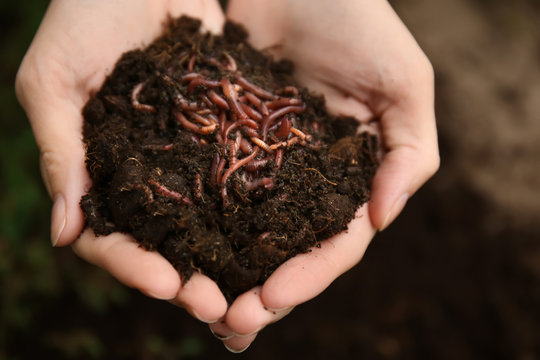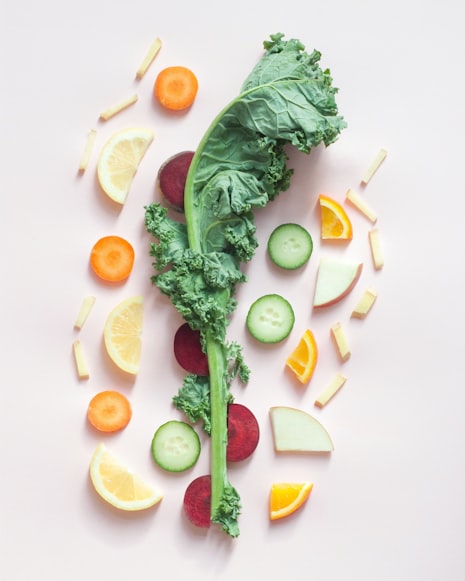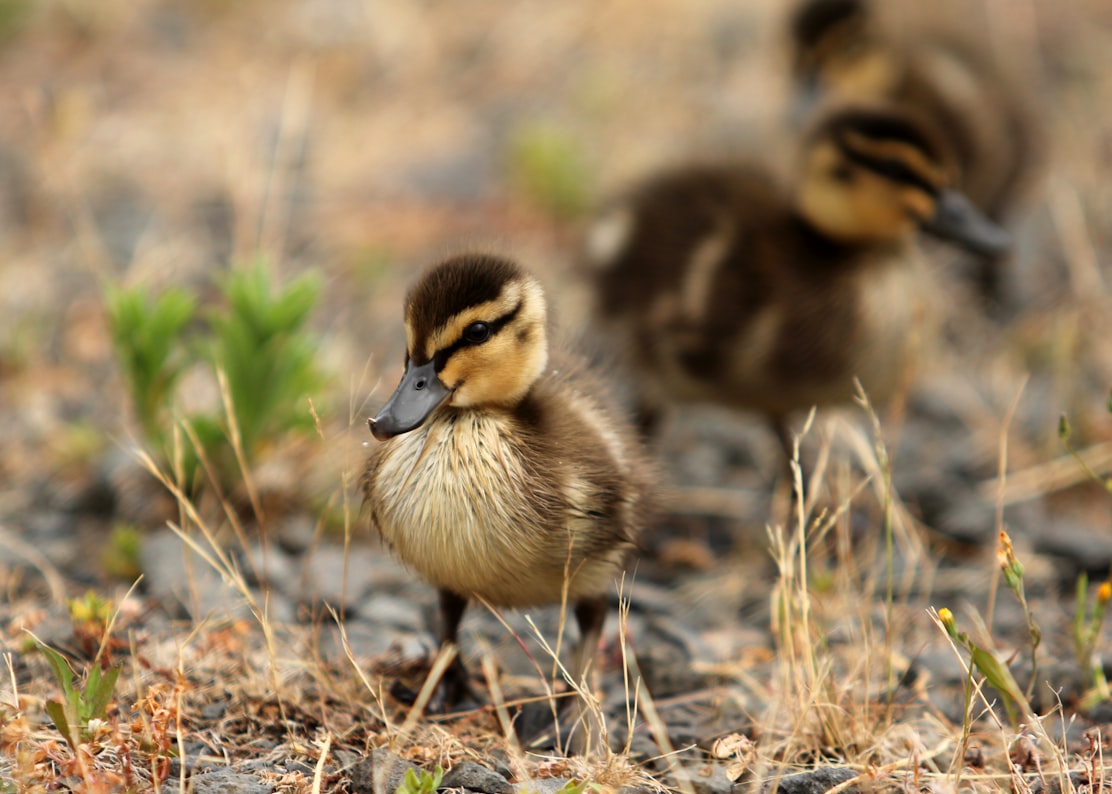As an Amazon Associate I earn from qualifying purchases.
What Do Baby Ducks Eat in The Wild?
The first personal encounter most birder keepers remember having with a wild animal was when they fed the ducks at a local park or pond as a youngster. Many wildlife conservationists and city authorities argue over whether feeding wild birds is beneficial or not.
Despite their opposing viewpoints, if you want to offer ducks or geese some goodies, it’s essential to understand what nutritious options there are.
What Do Baby Ducks Eat in The Wild?
Ducklings are born from eggs in the wild, then follow their mother. She leads them to a location where they may discover food and drink.
A baby duckling is capable of consuming everything from worms and insects to algae and vegetation, depending on its species. They may eat during the day in warm weather. However, as winter approaches in colder areas, they will need to stay near water since their food will freeze over.

In the summer, wild newborn ducks consume a lot of grass and weeds, making them gassy and uncomfortable to digest over the winter. This is dangerous because their stomachs may not expand as they start to eat different foods. Their diets transition from insects and even tiny fish as they mature.
What Do Baby Ducks Eat as Pets?

Domestic ducks have a considerably more advanced diet than free-roaming wild ducks. The majority of them have gotten used to duck or chicken feed as their primary food source. If they are given the opportunity, however, they will forage for grass, slugs, insects, and delectable plant foliage to supplement their diet.
You may offer them any of the food that is appropriate for wild ducks, including vegetables, fruits, berries, and grains. However, junk food like pasta and bread should be avoided. There are some domestic ducks that work for a living by consuming slugs and bugs.
Runner ducks are also used by a handful of wineries to eat all the insects they can find in the fields. These ducks are well cared for and have safe living quarters, as well as nutritious meals provided at the end of the day.

What Should You Be Feeding Wild Baby Ducks?
You can feed omnivorous birds, such as ducks, swans, and geese, a variety of other healthy, safe, and nutritious foods. The finest diets provide minerals, nutrients, and vitamins that are essential for proper growth and development in the birds.
Many of these meals are comparable to the insects, seeds, mollusks, grains, and plants that the birds will search for on their own. Cracked corn is excellent; however, it’s important to avoid feeding your baby duck other meats because they’re high in fat. Earthworms are also an excellent option. Chopped lettuce or other leafy green vegetables may also be a suitable option.
Another fantastic alternative is duck feed pellets or poultry starter pellets. Poultry feed may be found at farming or agricultural supply shops. These pellets are the same food that some parks and zoos provide through coin-operated vending machines.
What Should You Avoid Feeding Wild Baby Ducks?
The most popular things that people feed to baby wild ducks are typically the most harmful. Food items like bread, crackers, chips, donuts, popcorn, cereal, and other bread-type products or garbage food scraps are not suitable for birds.
It’s not recommended to feed bread to ducks since it has very low nutritional value. This can actually end up harming the baby duck’s development process. The unused leftovers frequently cause pollution in the water system which consequently attracts pests and other unwanted rodents. Some individuals offer their stale or moldy bread, which should never be given to the birds: Mold of various sorts is poisonous for waterfowl.
How Often Should You Feed Wild Baby Ducks?

The practice of feeding waterfowl, such as ducks, swans, geese, and other aquatic birds is a point of contention among bird enthusiasts, conservationists, and park officials.
There are a lot of misconceptions about feeding wild birds. Some people think that feeding the birds will prevent them from flying away. Some waterfowl species, including those that are hand-fed or not, live in city parks and similar bird habitats and are non-migrating birds.
Waterfowl are actually capable of finding their food in the wild and surviving without human handouts, despite popular belief. They may survive by hunting for food in nature, getting what they need from natural sources, and fending for themselves, regardless of the season or how much they beg for snacks.
Too much feeding, according to experts, is unhealthy and may result in the production of waste and pollution, which can harm birds and other animals. Rats, foul odors, and illnesses can be attracted to uneaten food. Some birds that are fed too frequently may become aggressive and cause problems if they proliferate in a tiny space.
Some birders believe that if you must offer ducks or any other wild birds a treat, the best option is to give them nutritious foods.
How to Feed Wild Baby Ducks?

Caring for wild ducklings is a time-consuming process that consists of many elements. Sizing up the situation, there are numerous points to consider before taking care of wild ducklings. It’s crucial to feed baby ducks on a regular, nutritious diet if you’ve just rescued them so they can become full-sized birds.
If you only want to offer baby ducks at the park, you should still provide them with nutritious meals. You can ensure that the baby ducks you’re feeding are happy and healthy by feeding them the proper food and ensuring they get enough of it.
The mother duck effectively cares for her youngster baby ducks or ducklings. If the mother duck is not present, it’s critical to know how to feed her ducklings. Feeding wild baby ducks only when absolutely necessary is recommended. Bread, for example, might prove to be detrimental to the baby duck’s health. Thus, you must understand what to provide wild baby ducks (what may have been abandoned by their family) before attempting to feed them.
For the first 72 hours after being born, ducklings do not require food or water. The newborn duck will get nutrients through ingesting the yolk from its sac. The sac, in turn, is actually present in the very egg the baby duck hatched from.
Waterfowl starter crumbles are a type of food that contains waterfowl or game bird starter feed. This may be found online or at feed stores, as well as some pet shops. It’s critical that it’s non-medicated since this sort of feed can be deadly to ducklings. Starter food should be offered to ducklings from the time they hatch until they are between 2 and 4 weeks old. The starter diet has a protein content of roughly 18 to 20 percent.
When the ducks reach three weeks of age, begin feeding them a grower diet. Grower pellets are bigger than starter pellets and have less protein. It’s critical to offer chopped greens or delicate lettuce leaves to the baby ducklings’ food. The wild ducklings consume seagrass and vegetation as part of their natural regimen.
At all times, supply clean water. Food cannot go down an empty stomach of a duck. To wash the food down, ducklings will naturally take some food and some water.
What Are The Natural Predators of Wild Baby Ducks?
Ducks are far more susceptible to predators than chickens. The meat and egg fowl do not have a natural defense against common duck hunters because their beaks are rounded, their toenails aren’t sharp enough to cause damage, and most domesticated breeds don’t have the ability to even attempt to fly away.
Hawks
A hawk may easily shred their back with the sharp talons on their feet and try to fly away with them while a duck isn’t big enough or strong enough to carry off a grown-up large breed of duck.
A large hawk can typically support around five to eight pounds, which is roughly two-thirds of its body weight. Young ducks and tiny duck breeds are particularly at risk from these predatory birds. It is prohibited in almost every state to kill a hawk.
Coyotes
Even the most enormous of duck breeds are vulnerable to a coyote. Coyotes typically attack between dusk and dawn. Although uncommon, a starving or infected coyote may target ducks and other livestock throughout the day if it’s desperate or crazy.
Minks
One of the most hazardous duck predators on our farm is mink. They attack swiftly and can kill several poultry in a single night. A mink may not consume all of what it kills, but its sharp little claws will tear apart the neck meat of ducks, causing them to die quickly or slowly and painfully from shock.
Raccoons
The raccoon is the only tiny duck predator that may be found in every state. They dig and scratch their way into any worn, rent, thin, or large enough space to obtain a meal.
Foxes
Since the dawn of time, foxes have been breaking into chicken coops. Unlike coyotes and bobcats, they are more likely to attack during the day and maybe as brave as they are sly and quick.
Owls
Owls, like hawks, will swoop down and capture a duckling as well as sneak around and steal eggs.
Bobcats
Despite the fact that ducks of many sizes and ages are hunted by this predator, it will go after all types, including tiny. If the flock is set up before dark, this duck predator will not be able to convert them into a meal.
Are Wild Baby Ducks Healthy To Eat?
Duck meat is typically associated with the pricey Peking duck dish, which is often eaten in many Chinese restaurants. However, there’s a lot more to this delectable piece of poultry than sampling an Asian luxury meal. Here are five additional advantages of including duck into your diet.
Duck flesh, contrary to popular belief, is not always fatty. In fact, the majority of the fat associated with it is found on the skin and may be removed during preparation or cooking. Done correctly, duck meat may have far less fat than chicken breasts yet maintain a rich flavor and nutritional value.
Nutrients
Duck contains a great deal of protein, just like chicken. It also has various minerals such as niacin and selenium. Both of these contain powerful immunological stimulants.
Duck meat may be a better option than other fattier meats since it has less fat and can be carved more readily. Its minerals are in far greater quantities than chicken, so eating it fulfills a larger proportion of your daily values for them.
Duck is used for a variety of purposes in addition to its meat. Duck bones can be utilized to make bone broth, such as pho, and duck fat may be substituted for butter. You may consume duck offal just like chicken, making livers into pan-frying kidneys. You may even eat ducks’ eggs if you’re feeling daring or need to inject some natural vitamins into your system.
Anything you’d do with chicken may be done with duck. Duck meat can be used in any recipe that calls for chicken.
Amazon and the Amazon logo are trademarks of Amazon.com, Inc, or its affiliates.

